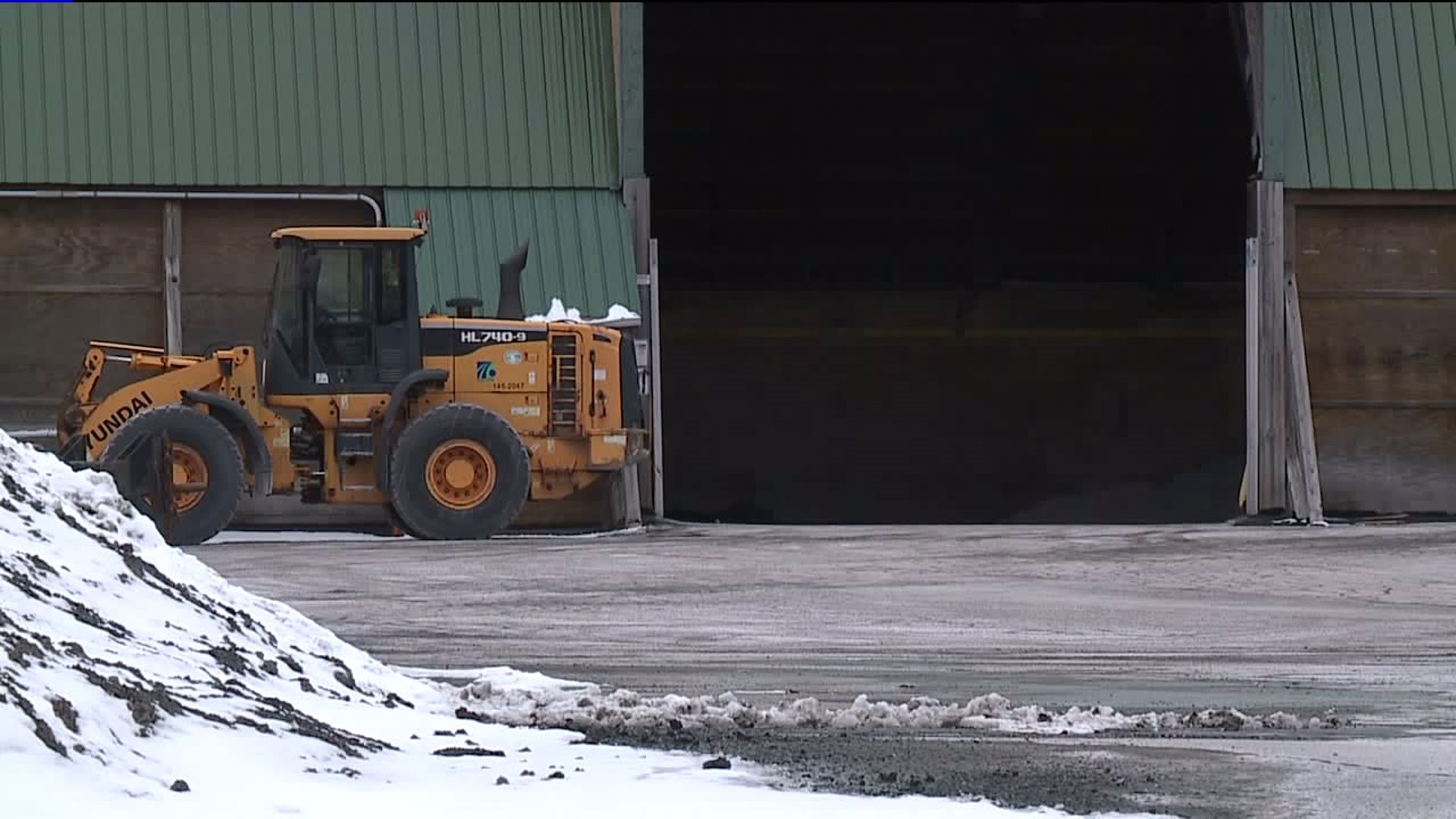LEWISBURG -- Trucks dropped so much salt on one rural road in Union County this winter, it caked on the blacktop.
Ben Hayes runs the Watershed Sciences and Engineering program at Bucknell University in Lewisburg. He brought us to one of several small creeks he's tested for salt levels. He's found that right after winter storms and during spring snow melts, these streams and their plants often get sick with salt poisoning.
"Critical condition in certain areas to stable, but it's not in the prime of its health," Hayes said.
In the last 20 years, federal monitoring stations on the Lackawanna River in Old Forge and on the Susquehanna River in Tunkhannock and Wilkes-Barre show a sharp increase in what's called conductivity levels. That measures how the water conducts electricity. The higher the conductivity, the higher the likely levels of salt.
And people don't have to live near water to know the damage road salt can do.
18 years ago, Simone Gentile discovered salt eating away the indoor plumbing at her home in Mount Cobb. Road salt contaminated her backyard well in Lackawanna County. The contaminated water corroded her pipes and appliances.
"The water heaters, they kept bursting," Gentile said. "And you'd go down and there'd be water all over the cellar."
She says salt dried her soil and killed a cherry tree on her lawn.
Investigators found the salt came from an unprotected PennDOT stockpile near her home just off Interstate 84. That shed and all other sheds in the state are now covered and have a special liner that keeps salt from seeping into the soil.
But nothing keeps the road salt that trucks spread before, during, and after snowstorms from getting into our soil, rivers, creeks, and lakes and from causing damage.
Salt eats away at the undercarriage of cars and corrodes concrete bridges.
"PennDOT wants to be environmentally responsible," PennDOT official Rich Kirkpatrick said.
Kirkpatrick points out PennDOT used 26 percent less salt in our region over the last two years, 50 percent less in Schuylkill County, and 46 percent less in Carbon County.
The governor recently honored eight PennDOT stockpiles in Luzerne County for balancing the protection of drivers and the environment.
PennDOT's tracking systems help spreaders find where salt is needed most.
But Kirkpatrick added road salt remains the most effective way to keep roads safe.
"We've got an obligation to the state's nine million licensed drivers that when winter weather hits, they want to be able to move," said Kirkpatrick.
PennDOT is looking at environmentally friendly alternatives.
At the Delaware Water Gap National Recreation Area in Monroe County, scientists credit a mix that dilutes salt with beet juice to keep salt levels low in the pristine waters.
But there are a couple of problems with the environmentally friendly alternatives. They're expensive and they're not as effective as everyday road salt in colder temperatures.
That's why the park closes its main roads when temperatures dip into the teens.
In Union County, Ben Hayes' team from Bucknell test the Susquehanna River near Lewisburg. Salt levels in the Susquehanna are considered safe but rising.
"It's a real concern because we're not equipped. These water treatment facilities along our rivers," Hayes said. "They don't currently treat for sodium or chloride."
If salt levels continue to rise, Hayes says that spells trouble for the seven million people who rely on the Susquehanna for drinking water and the wildlife that call the river home.

